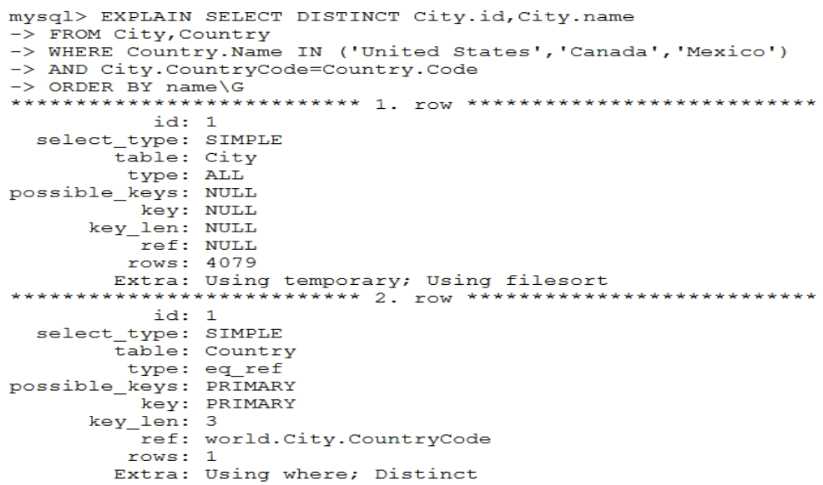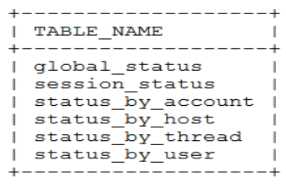oracle 1z0-888 practice test
MySQL 5.7 Database Administrator Exam
Last exam update: Apr 14 ,2025
Question 1
A MySQL instance is running on a dedicated server. Developers access the server from the same
network subnet. Users access the database through an application that is running on a separate
server in a DMZ.
Which two will optimize the security of this setup? (Choose two.)
- A. enabling and using SSL for connections to the MySQL database
- B. running the server with –-skip-networking specified
- C. disabling connections from named pipes or socket files (depending on the operating system of the server)
- D. starting the server with –-bind-address=0.0.0.0 specified
- E. limiting logins to originate from the application server or the server’s subnet
- F. installing MySQL on the application server, and running the database and application on the same server
Answer:
A,F
Question 2
You need to dump the data from the master server and import it into a new slave server.
Which mysqldump option can be used when dumping data from the master server in order to
include the master servers binary log information?
- A. include-log-file
- B. master-binlog
- C. include-master-info
- D. master-data
Answer:
D
Question 3
While attempting to set up a new replication slave on host 192.168.0.25 with the user replication,
you encounter this error:
What should you do to resolve this error?
- A. Add the user [email protected] with the correct password to the master.
- B. Edit the DNS table on the master to include the domain name for the IP address of 192.168.0.25.
- C. Edit the my.ini file on the slave so that the master-host variable is equal to the IP address of the master, and restart the slave.
- D. Add the user [email protected] with the correct password to the slave.
Answer:
A
Question 4
Which two capabilities are granted with the SUPER privilege?
- A. allowing change of the server runtime configuration
- B. allowing a client to shut down the server
- C. allowing client accounts to take over the account of another user
- D. allowing a client to kill other client connections
Answer:
B,D
Question 5
Consider:
Which statement best describes the meaning of the values in the ref columns?
- A. world.City.CountryCode is used as the primary key for the Country table.
- B. No indexed columns are used to select rows from the City table. The world.City.CountryCode column is used to select rows in the Country table.
- C. world.City.CountryCode is used to sort the rows in the City table.
- D. No indexed columns are used to select rows from the Country table. The world.City.CountryCode column is used to select rows in the City table.
Answer:
B
Question 6
The Performance Schema includes these tables related to status variables:
Which two facts are true about these tables? (Choose two.)
- A. The variable values in global_status are the sum of those in status_by_thread grouped by the variable name.
- B. All these tables have the same number of rows.
- C. The global_status table is equivalent to the SHOW GLOBAL STATUS statement.
- D. The variable values in status_by_account are the sum of those in status_by_host and status_by_user grouped by the variable name.
- E. The session_status table is equivalent to status_by_thread for the current thread.
Answer:
D,E
Question 7
You are remotely logged in to MySQL as the user backup.
The account has temporarily been granted full privileges WITH GRANT to perform the actions
required.
You want to change the password for the locally existing backup user.
Select the three commands which will perform the required action. (Choose three.)
- A. SET PASSWORD FOR ‘backup’@’localhost’ = ‘password’;
- B. SET PASSWORD = ‘password’;
- C. SET PASSWORD FOR ‘backup’@’localhost’ = PASSWORD (‘password’)
- D. ALTER USER USER() IDENTIFIED BY ‘password’;
- E. CREATE USER ‘backup’@’localhost’ IDENTIFIED BY ‘password’;
- F. ALTER USER ‘backup’ IDENTIFIED BY ‘password’;
- G. ALTER USER ‘backup’@’localhost’ IDENTIFIED BY ‘password’;
Answer:
D,E,G
Question 8
Multiversion Concurrency Control (MVCC) enables what type of backup?
A. Hot
B. Binary
C. Logical
D. Incremental
Answer:
A
Question 9
Consider:
What does the range value in the type column mean?
- A. You can use an index and return rows that fall within a range of values.
- B. The table will be scanned over a certain range of values.
- C. This type of index uses the range hash.
- D. There is a range of indexes that can be used.
Answer:
C
Question 10
Which MySQL utility copies the master instance to a slave instance on the same host?
A. mysqlfailover
B. mysqldbcopy
C. mysqlrplsync
D. mysqlserverclone
Answer:
D
Question 11
Which statement is true about tablespaces?
A. All tablespace files must be in the directory specified by the -datadir option.
B. General tablespaces can be configured to span multiple files.
C. All tables must be in either the system tablespace or a general tablespace.
D. The system tablespace can be configured to span multiple files.
Answer:
C
Question 12
Which statement is correct about how InnoDB storage engine uses disk space?
- A. It stores data in .MYD files and its index and undo information in the common tablespace.
- B. It stores data in .MYD files, index information in .MYI files, and undo information the common tablespace.
- C. It stores its data in tablespace file(s). Index and data dictionary details are stored in .FRM files.
- D. It stores its data, index and undo information in .MYD and .MYI files.
- E. It stores data, index and undo information in tablespace file(s).
Answer:
E
Question 13
Which two methods will provide the total number of partitions on a table? (Choose two.)
A. Query the INFORMATION_SCHEMA.PARTITIONS table
B. Use the command: SHOW TABLE STATUS
C. Query the performance_schema.objects_summary_global_by_type table
D. Query the INFORMATION_SCHEMA.TABLES table for the partition_count
E. Use the command: SHOW CREATE TABLE
Answer:
A,B
Question 14
Where does MySQL Linux RPM install the mysqld binary?
A. /usr/libexec/
B. /usr/local/mysql/bin/
C. /usr/sbin/
D. /usr/bin/
E. /opt/mysql/server/bin/
Answer:
C
Question 15
You are investigating the performance of the server and see this information:
events_waits_summary_global_by_event_name in the Performance Schema shows that the
wait/synch/mutex/sql/LOCK_table_cache event is dominating other wait events.
The Table_open_cache_overflows status variable is 0.
Which action should be taken to remove the performance bottleneck described here?
- A. Increase the value of table_open_cache_instances.
- B. Decrease the value of table_definition_cache.
- C. Decrease the value of table_open_cache.
- D. Increase the value of table_definition_cache.
- E. Increase the value of table_open_cache.
- F. Decrease the value of table_open_cache instances.
Answer:
A